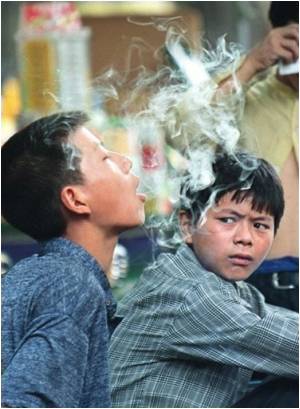If children are exposed to adverse childhood experience (ACE) in early years, they become vulnerable to non-coping behaviors and may even have adjustment problems in future.

Researcher Tara Strine and colleagues conducted a study that was published in Substance Abuse Treatment, Prevention and Policy 2012, for examining ‘psychological distress as a potential mediator of sex-specific associations between ACEs and adult smoking.’
The experts collected data from 7,210 Kaiser-Permanente members in San Diego California between April and October 1997.
The researchers noticed that more that more than 60 percent of the volunteers reported a past history of ACE. They found a difference in the relationship between ACE’s, psychological distress and adult smoking among sexes.
The experts observed that females who had suffered emotional and physical trauma in their early years were 1.4 times more susceptible to smoking in adulthood. Furthermore women having one of their parents imprisoned had 50 percent more chances of smoking.
The psychological anguish accounted a remarkable relationship between smoking and ACE among women- emotional abuse 21 percent, physical neglect 15 percent, physical abuse 16 percent, divorce or parental separation 1o percent. In men ACE and smoking were not significantly related.
Dr. Tara Strine mentioned that since ACEs increase the risk of psychological distress for both men and women it seemed intuitive that an individual experiencing an ACE will be more likely to be a tobacco cigarette smoker.
The study findings highlight the significance of smoking cessation strategies and campaigns in providing fruitful results in order to protect the female children from resorting to smoking in their adulthood.
Reference:
The mediating sex-specific effect of psychological distress on the relationship between adverse childhood experiences and current smoking among adults; Tara Strine et al; Substance Abuse Treatment, Prevention and Policy 2012
Source-Medindia















